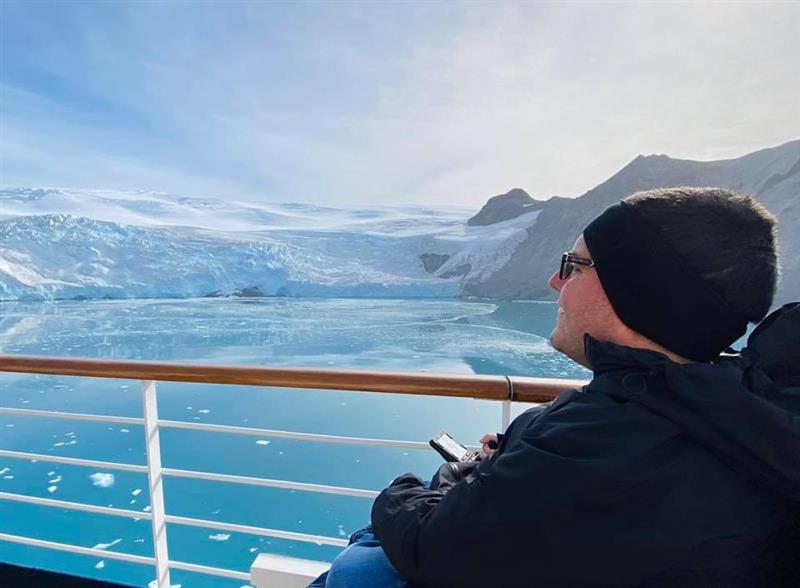Accessible Living - BraunAbility Article Library
In this section of the BraunAbility article library we focus on accessible living that range in topics from air travel 101 for wheelchair users to college tips for students with disabilities.
Don't see what you are looking for? Send us an email at suggestions@braunability.com with requests and suggestions.

Accessible Travel: Destinations, Flying, Cruises, & More
Plan your next accessible vacation with ease. From wheelchair-friendly hotels to accessible travel tips for flying and beyond, we've got you covered. Start exploring now.
Continue Reading
ALS Awareness Month: Understanding the Disease and Its Impact
Learn about ALS, including its symptoms, causes, diagnosis, and impact on individuals

8 Tips for Booking a Wheelchair Accessible Hotel Room
Discover essential tips for booking a wheelchair accessible hotel room from accessible travel blogger, Cory Lee.

The Best Accessible Travel Agencies and Tour Guides
Check out award-winning accessible travel blogger Cory Lee's favorite travel agencies and tour guides for people with disabilities.

What is Durable Medical Equipment (DME)?
Discover comprehensive information on durable medical equipment. Understand coverage requirements to make informed healthcare decisions.

Accessible Baby products for Parents with Disabilities
Explore accessible baby products for disabled parents with our guide, offering essential baby products for the transition to parenthood.

Accessible Kitchen Modifications for Wheelchair Users
Explore key tips for designing an accessible kitchen that enhances independence and safety for individuals with disabilities.

Assistive Technology for People with Disabilities
Explore how assistive technology empowers individuals with disabilities, enhancing independence and quality of life through innovative tools and solutions.

The Best Wheelchair Accessible Trips to Take for Every Season
Planning to take a wheelchair accessible trip this year? Accessible Travel blogger Cory Lee has compiled a list of destinations to visit in every season.

How to Plan for Memorable Accessible Day Trips
Looking to plan a short day trip? Follow Cory Lee's tips for planning a wheelchair accessible day trip for people with disabilities.

BraunAbility and Servants at Work Build Wheelchair Ramps
For more than a decade, BraunAbility has partnered with Servants at Work (SAWs), a local non-profit building home wheelchair ramps. Together, we've built well over 100 ramps for people in need.

Going to a Concert in a Wheelchair: Making Live Music Accessible
Want to learn more about wheelchair accessible live music and concerts? Cory Lee shares his recent experience at a concert venue and how to find accessible concert tickets at your venue.

Paralympic Sports: Boccia
Boccia is one of two sports exclusive to the Paralympics. Initially played by athletes with cerebral palsy, today, individuals with various physical disabilities affecting their motor skills can play the sport.

Paralympic Sports: Goalball
Goalball is specifically designed for athletes with disabilities, relying heavily on sensory and spatial awareness skills. The team sport is played indoors with a ball equipped with bells.

Wheelchair Accessible Tiny Homes
Tiny homes have emerged worldwide over the past few decades. While smaller spaces aren’t usually associated with wheelchair access, several modifications can make a tiny home accessible to people with physical disabilities.

Wheelchair Accessible Cruises for People with Disabilities
Want to learn more about your wheelchair accessible cruise options? Cory Lee shares his experience cruising the oceans on some of the world's most popular cruise lines.

Visiting Disneyland in a Wheelchair
Want to experience the magic of Disney, but unsure of the wheelchair accessible options at the park? Cory Lee breaks down how get the most out of Disney as a wheelchair user, including accessible rides, transportation, and passes.

How to Build a Wheelchair Ramp for a Deck
Follow this guide to build a wheelchair ramp for your deck, ensuring it meets safety standards and provides smooth access for individuals using wheelchairs or other mobility aids.

Top 5 Wheelchair Accessible Beaches in the U.S.
Cory Lee has explored the United States looking for the most wheelchair accessible beaches. Learn which sandy getaways have landed in his top 5 and what makes a beach accessible.

Top Tips for Flying in a Wheelchair from Cory Lee
Cory Lee has had the opportunity to fly on hundreds of airplanes over as an accessible travel blogger. Read his tips for preparing for a flight.

Aging In Place
If you’re looking for a safe place to call home for an older adult, you may have already considered an assisted living facility or a long-term care home. But, some seniors may prefer to stay in the comfort and familiarity of their current home.

Starting Accessible Vehicle Dreams with Driver Evaluation
Driving aids allow people with disabilities the freedom to independently drive a wheelchair van or the handicap accessible vehicle of their dreams.
